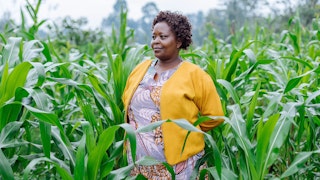Investment Profile
Acumen Resilient Agriculture Fund, LP
Jump Links
The Acumen Resilient Agriculture Fund (ARAF) enhances the climate resilience of African smallholder farmers with investments in early-stage agribusinesses that allow smallholders to anticipate, weather and recover from climate events.
Investment size:
$7.5M
Type
Fund
Geography
Africa
Date
2019



